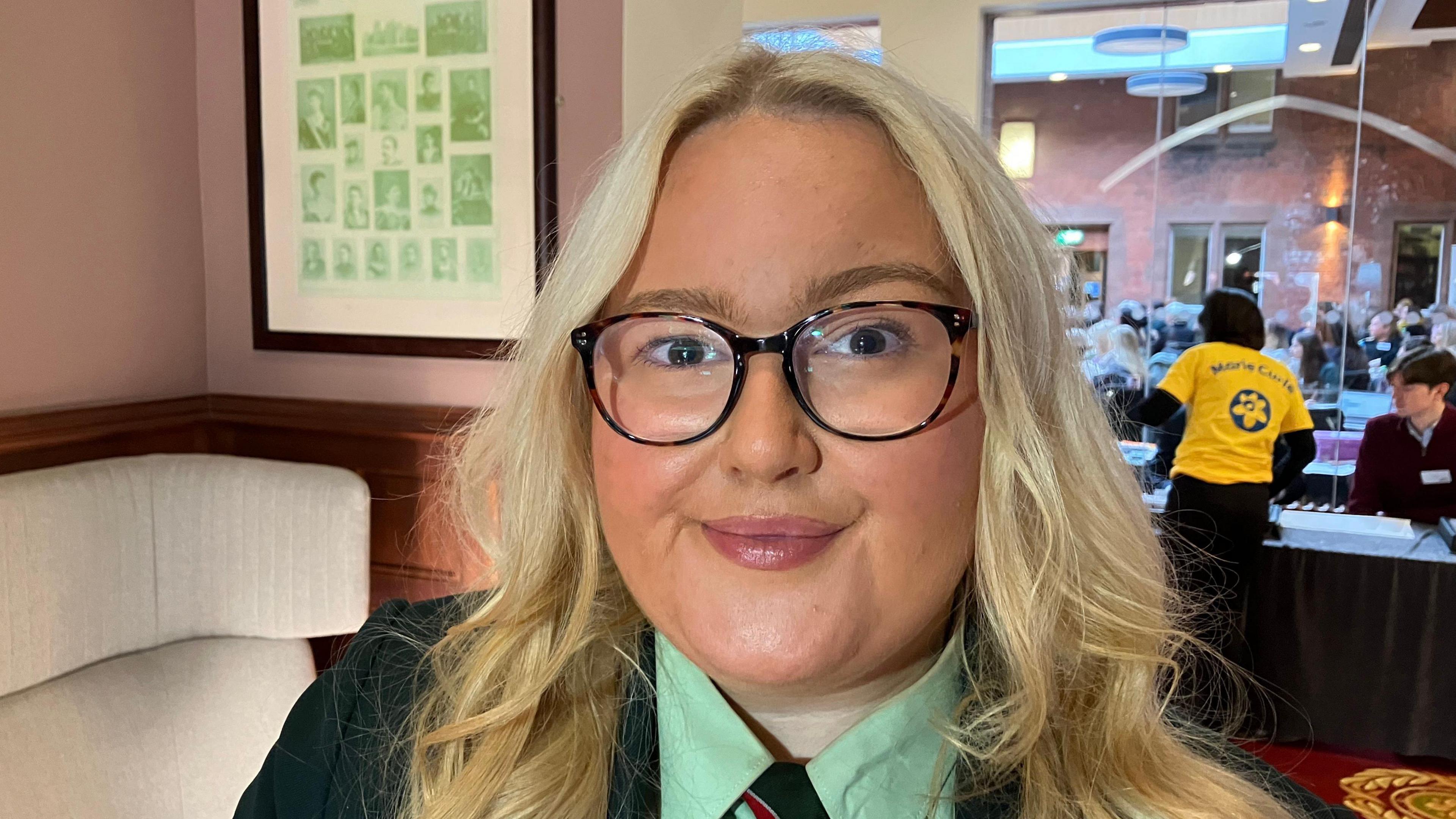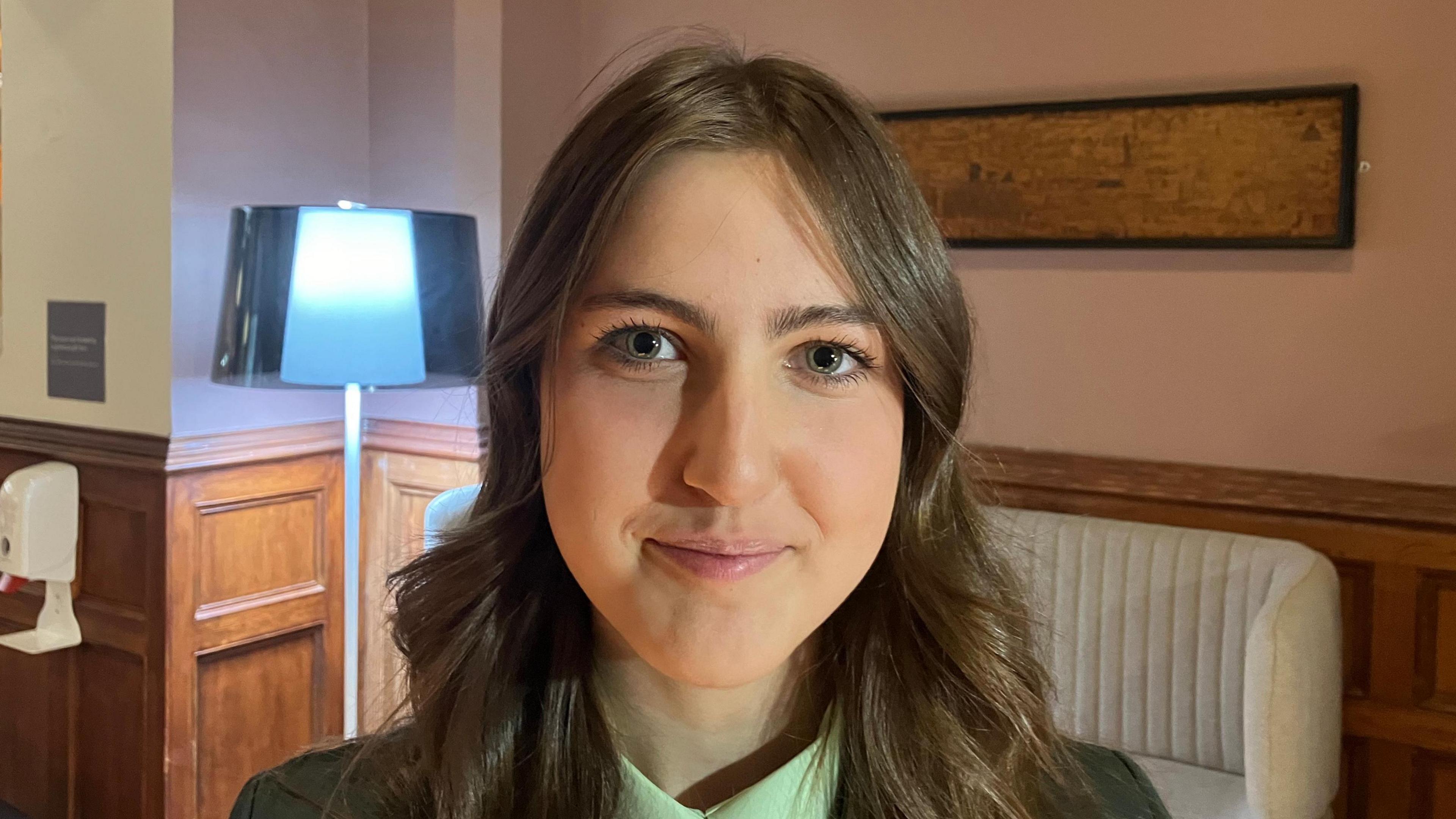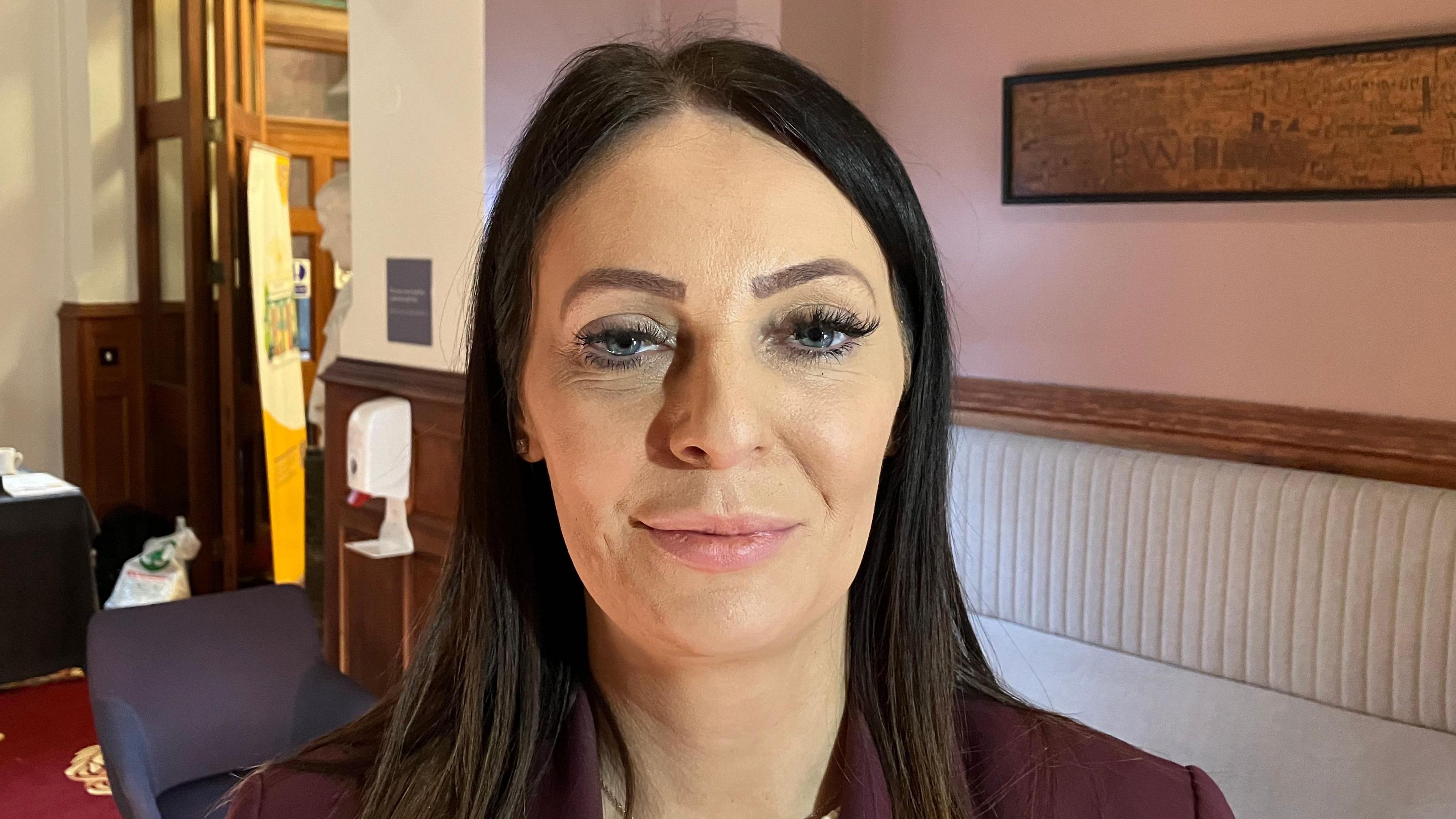Grief can be 'really overwhelming' for teenagers and young people
- Published
Mourning the loss of a loved one is difficult for anyone but navigating that grief while being a student adds an extra layer of challenge.
Some teenagers spoke to BBC News NI about their experience of bereavement at an event run for schools by the Marie Curie charity.
Fifteen-year-old Emma from Belfast High School was only four years old and in primary school when she lost her brother to leukaemia.
"It can be really overwhelming to deal with grief and then have to deal with practical things like catching up on homework," she said.
Though she is a teenager now, Emma said "there are still difficult days like anniversaries or birthdays".
Emma volunteers with Cruse Bereavement Care to help other young people and has contributed to research aimed at helping schools to better support bereaved pupils.
The Marie Curie charity is calling for more training for teachers in how to support pupils who have lost a loved one.
For Emma, there are some subjects that bring back memories of her brother's death.
"Just recently we were learning about leukaemia and stem cell treatment. My biology teacher was amazing," she said.
"She taught me what I needed to know and then after that she told me that I could just go for a walk and just take a breather."
School is 'biggest distraction'
Eighteen-year-old Darcy is studying for A-Levels at Regent House School in Newtownards.
She lost her mum to breast cancer in 2023.
"She had suffered for quite a long time before she passed, but my school has been absolutely amazing in helping me through it," said Darcy.
"School is definitely my biggest distraction whenever I think about it."

Eighteen-year-old Darcy lost her mum to breast cancer in 2023
When Darcy returned to school, her teachers, senior staff and school counsellor were made aware of her mother's death.
The school made adjustments as she began her A-Level studies.
"I missed a lot whenever I was off but my teachers were able to have one-on-one time with me to go over what I'd missed," she said.
"I've had so many teachers listen to me whenever I've been quite down about my bereavement."

Megan lost her dad when she was only 10
Eighteen-year-old Megan, also from Regent House, lost her dad when she was only 10.
She was about to move from primary school to post-primary at the time.
"Going into secondary school where nobody knows you, nobody knows your circumstances, it was difficult for me," she said.
"I felt maybe a little bit alone knowing that there were questions going to be asked - about potentially family questions or personal questions."
Megan said her mum the school aware of the family's loss before she started there.
"It was kind of kept to myself, but I knew there was help there if I needed it and I knew the teachers I could go to.
"It's really important that students are made to feel comfortable, and that they don't need to feel ashamed or embarrassed to talk about themselves."

Teacher Debbie Byrne runs the pupil-led mental health team and bereavement team in Regent House
Teacher Debbie Byrne runs the pupil-led mental health team and bereavement team in Regent House.
The bereavement team is led mainly by senior pupils who have been trained by Cruse Bereavement Care.
Ms Byrne said some students in junior school have been recently bereaved whilst others may be historically bereaved.
"So they meet with those pupils once a week or whenever they need additional support," she said.
'Every pupil will be different'
Regent House has also designed a bereavement room as a safe place for pupils.
"Every pupil will be different with their needs - some pupils want to discuss it, other pupils won't," Ms Byrne added.
She said that alongside vital training for teachers, there are also practical measures a school can put in place such as the option to "skip certain lessons depending on the topics".
A new Marie Curie report called Compassionate School Communities is based on the views of pupils, parents and teachers.
It aims to help schools put policies and support in place to help pupils with bereavement.
It is estimated about 900 parents with school-age children die in Northern Ireland each year, but some pupils will also lose grandparents and other relatives.
Joan McEwan from Marie Curie told BBC News NI that their research showed that young people wanted "bereavement support and grief education" in schools.
She also said when teachers are trained to offer that support "they're more confident to open up those conversations and ask the child what help and support they need and want".